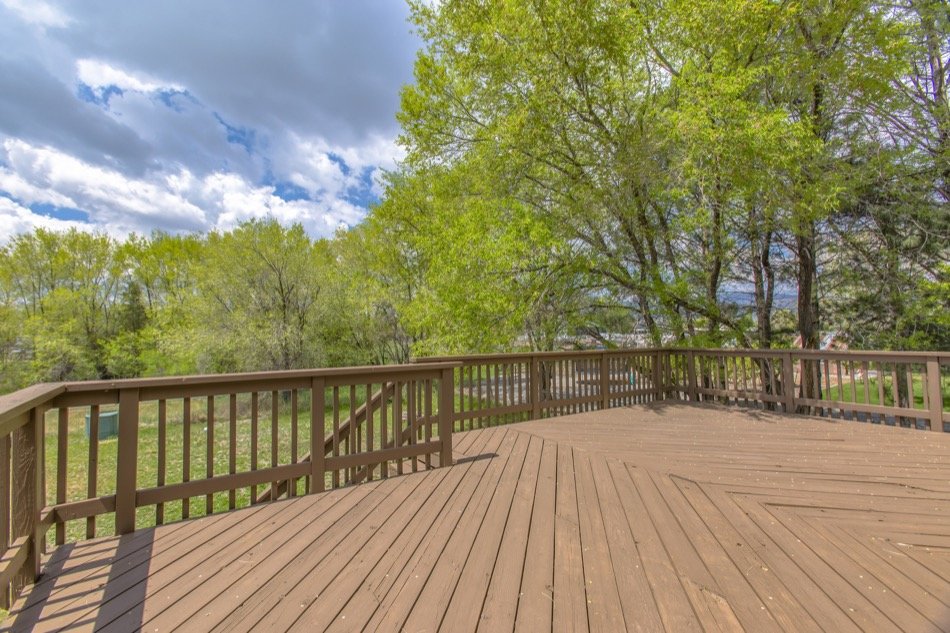How to Measure ROI on Deck Installation
Posted by EdmontonRealEstate .ca on Tuesday, July 2nd, 2019 at 12:56pm.
 Installing a deck can provide extra living space for the home, a comfortable outdoor entertaining space and a necessary update to the property's curb appeal. Many homeowners prefer to consider the return on investment for home improvement projects, as a way to ensure that they will get more than personal contentment from the result. These aspects of the process help people understand how best to approach ROI or resale value from installing a deck.
Installing a deck can provide extra living space for the home, a comfortable outdoor entertaining space and a necessary update to the property's curb appeal. Many homeowners prefer to consider the return on investment for home improvement projects, as a way to ensure that they will get more than personal contentment from the result. These aspects of the process help people understand how best to approach ROI or resale value from installing a deck.
Considering Resale Value
Experts estimate that the resale value of a deck approximately 18 square meters is about 70-80 percent. This means that homeowners can expect to recoup about two-thirds or more of the price they pay in a higher home value. This is especially important when selling a home. However, this is not always a simple calculation. The value of any home improvement depends on the house, the neighbourhood, and the general styles of the area. A deck that is larger or in better condition than others in the neighbourhood may be worth more in the eyes of buyers. A deck that fails to meet certain regional expectations could be worth less.
Materials
The materials homeowners choose for the deck can significantly change its look, price, upkeep, and longevity. People can usually choose among these common materials:
- pressure-treated wood
- solid woods like cedar, redwood or ipe
- composites made from sawdust and synthetic materials
- vinyl or PVC
The prices on these products can differ radically, and price is not always an indicator of longevity. Hardwoods tend to cost the most and can last the longest, but it depends heavily on long-term care. Homeowners should also keep in mind that higher prices tend to have a lower ROI overall. Buyers are only going to pay so much more for a deck, regardless of its material, unless they have virtually unlimited funds.
Design
Homeowners should confirm that the design of the deck also suits the general preferences of homeowners and buyers in the area. A very small deck may not have a greater value in areas where lots are larger and the decks span over a much bigger space. People may want to consider other features they would like to add to the deck to increase its interest and function, such as:
- fireplace
- seating
- outdoor kitchen
- lighting
Larger upgrades to the deck, like an outdoor kitchen, often cost enough to have their own ROI.
Construction
The construction of the deck affects how well it can sell to another buyer, particularly related to the home inspection. Typically, homeowners should hire a qualified deck installer to put in the deck. This person will know if a permit is required for the project, as well as the general building standards for decks in the province or city. A deck that looks great and was built correctly may pass an inspection with flying colours. A home improvement that brings up a lot of buyer concerns during the selling process may become a liability instead of a benefit.
Upkeep
Many deck manufacturers list the longevity of a deck at around 10-25 years, depending on material. Homeowners may have a different experience based on upkeep. Decks require regular care beyond cleaning, which may include:
- sanding
- staining
- resealing
- repair
A deck that is nearing the end of its life is not worth as much as something that looks new. Homeowners who are quick to make these fixes as needed will often have a deck that keeps its value longer.
Deck installation offers a rewarding source of relaxation and entertainment for Devon AB homeowners, but it can also increase resale value. By considering these aspects, people can determine what kind of ROI they can expect from a deck.

